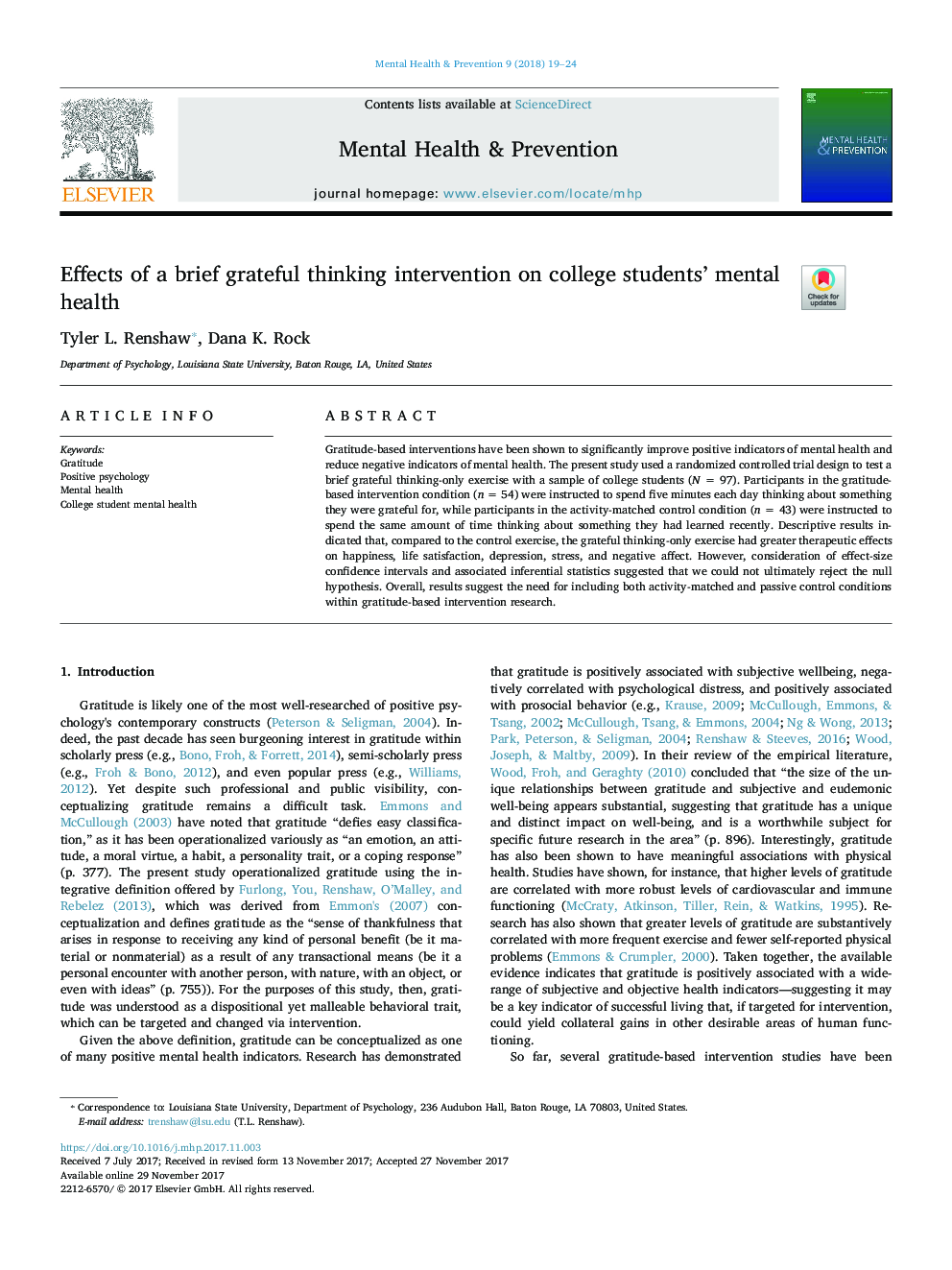| Article ID | Journal | Published Year | Pages | File Type |
|---|---|---|---|---|
| 6802743 | Mental Health & Prevention | 2018 | 6 Pages |
Abstract
Gratitude-based interventions have been shown to significantly improve positive indicators of mental health and reduce negative indicators of mental health. The present study used a randomized controlled trial design to test a brief grateful thinking-only exercise with a sample of college students (N = 97). Participants in the gratitude-based intervention condition (n = 54) were instructed to spend five minutes each day thinking about something they were grateful for, while participants in the activity-matched control condition (n = 43) were instructed to spend the same amount of time thinking about something they had learned recently. Descriptive results indicated that, compared to the control exercise, the grateful thinking-only exercise had greater therapeutic effects on happiness, life satisfaction, depression, stress, and negative affect. However, consideration of effect-size confidence intervals and associated inferential statistics suggested that we could not ultimately reject the null hypothesis. Overall, results suggest the need for including both activity-matched and passive control conditions within gratitude-based intervention research.
Related Topics
Health Sciences
Medicine and Dentistry
Medicine and Dentistry (General)
Authors
Tyler L. Renshaw, Dana K. Rock,
